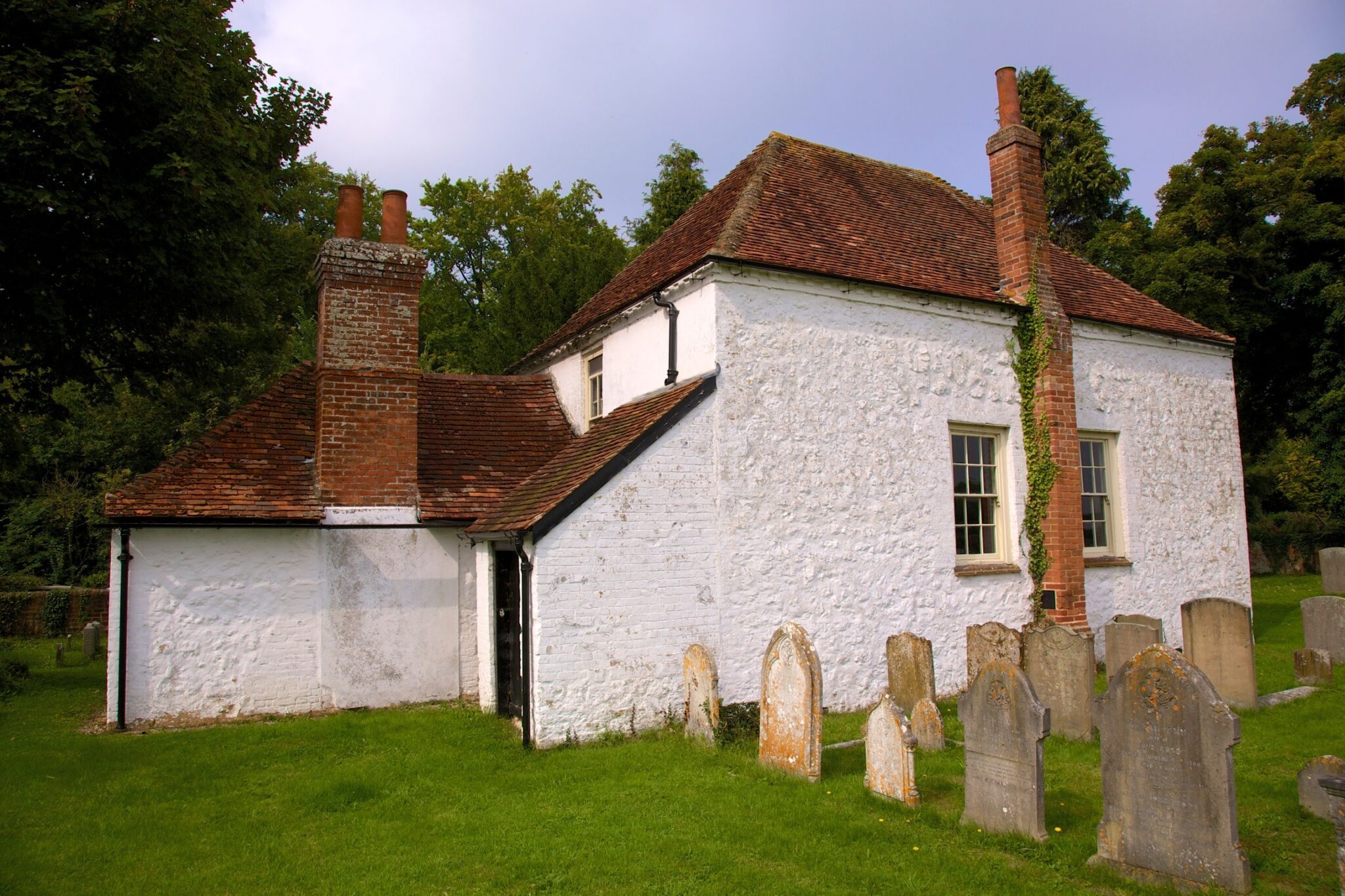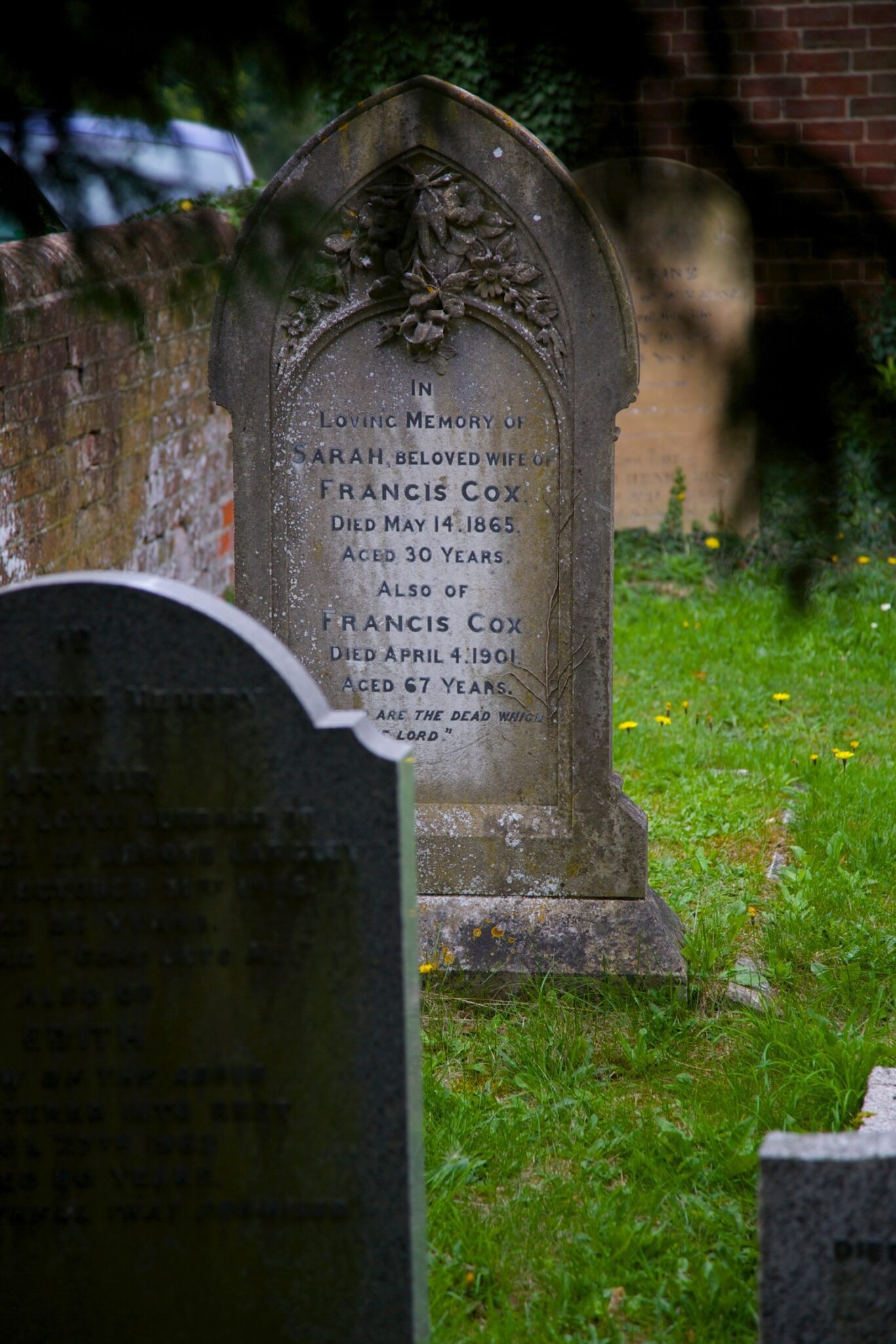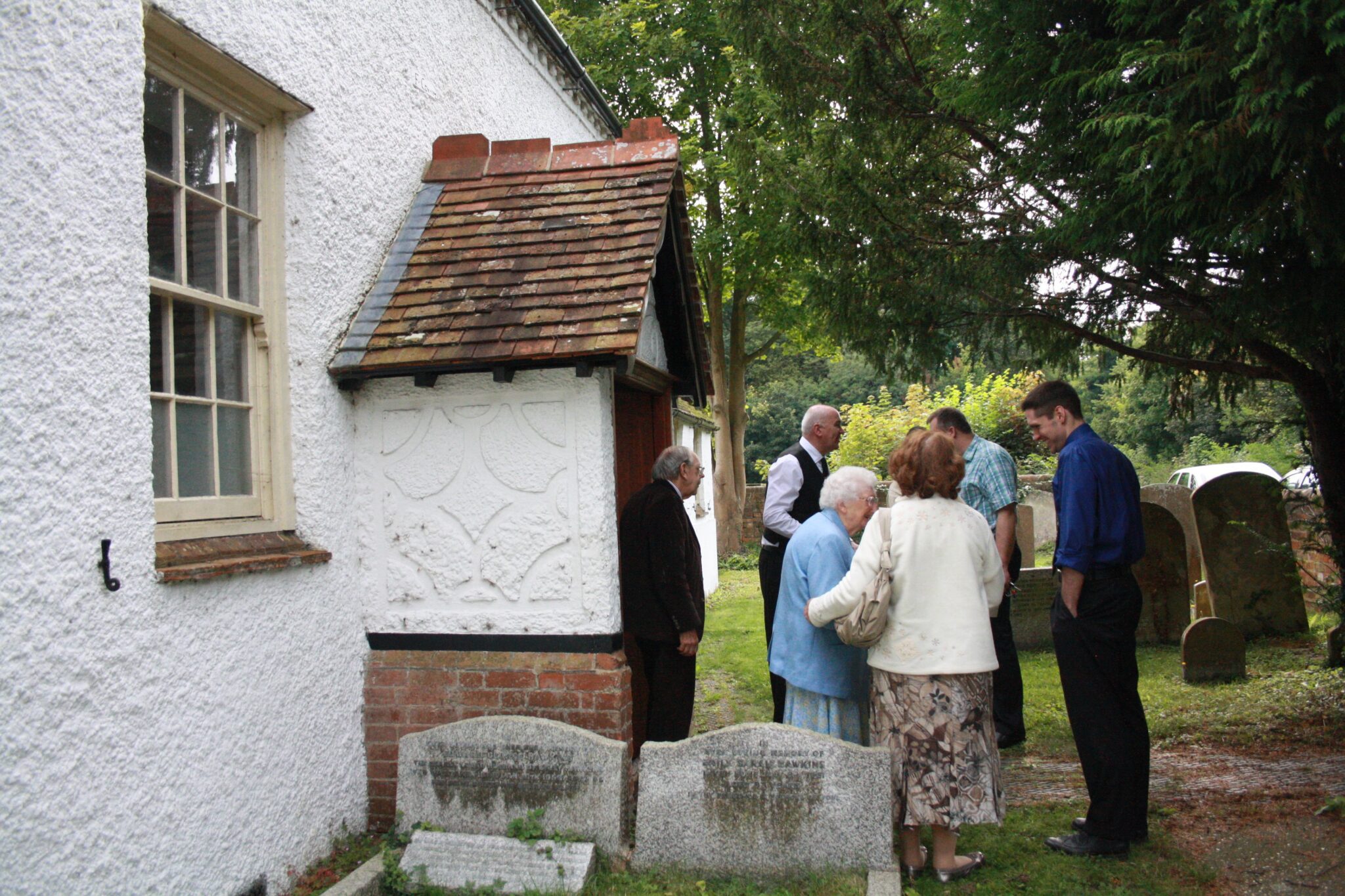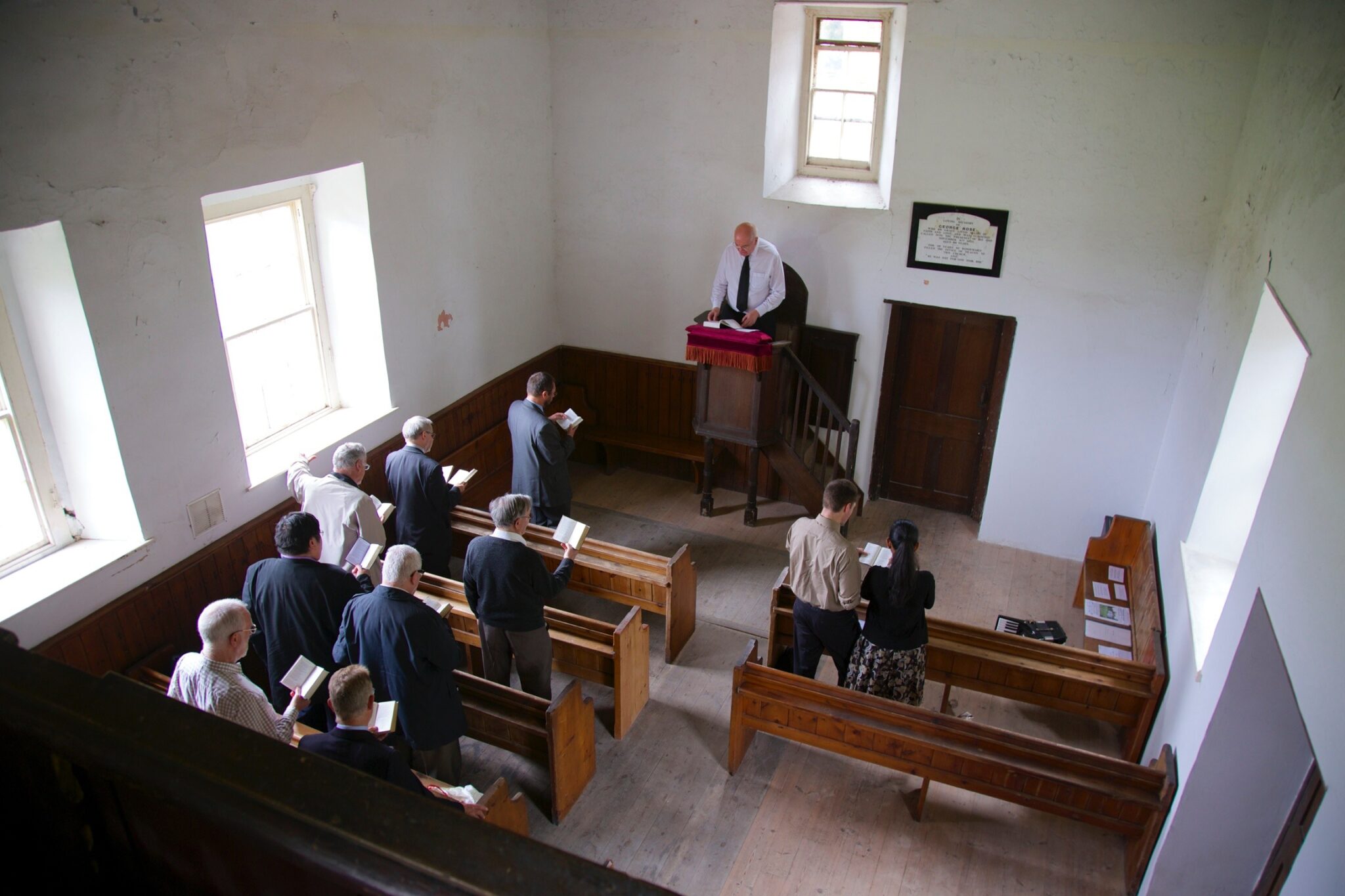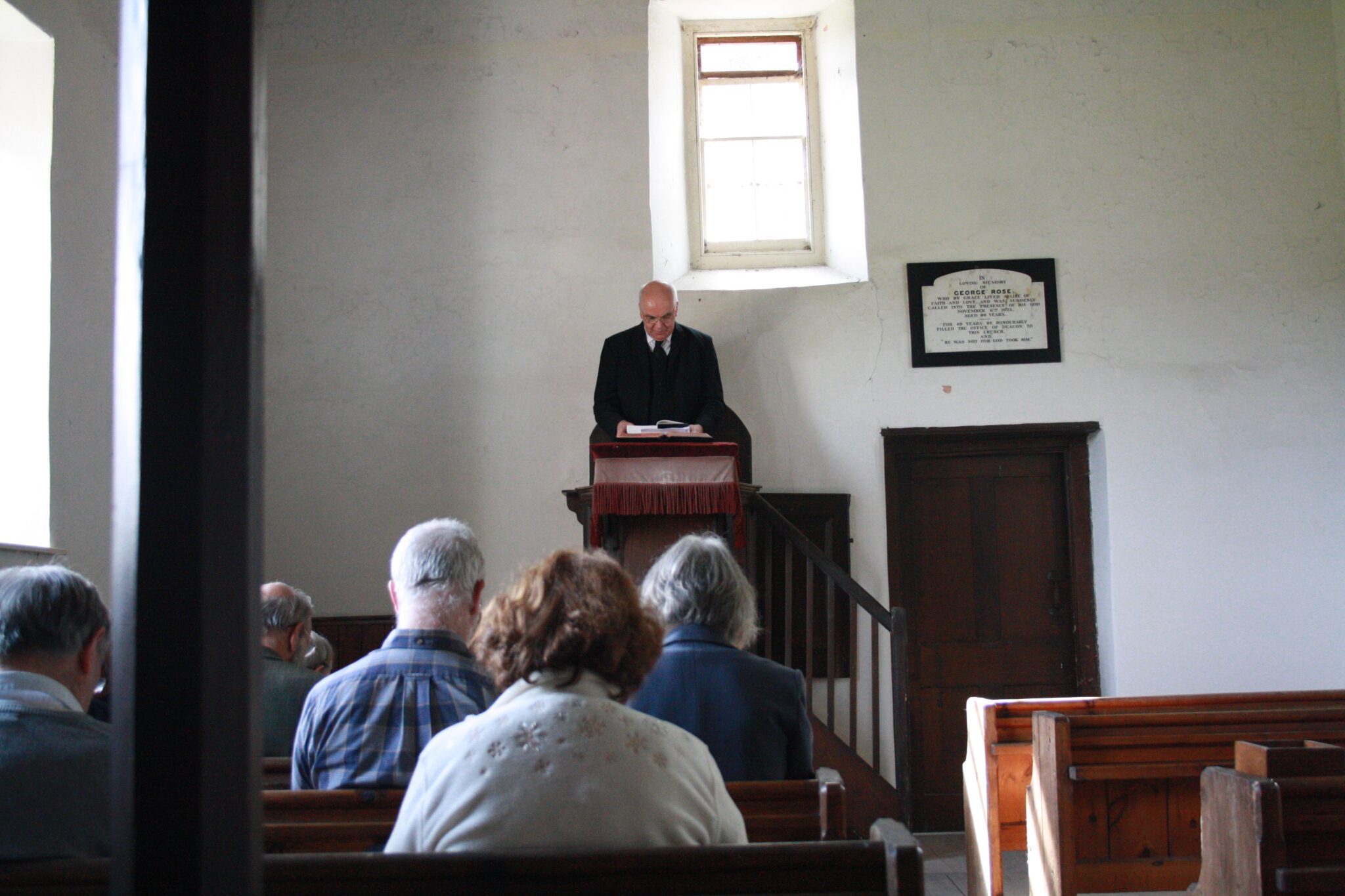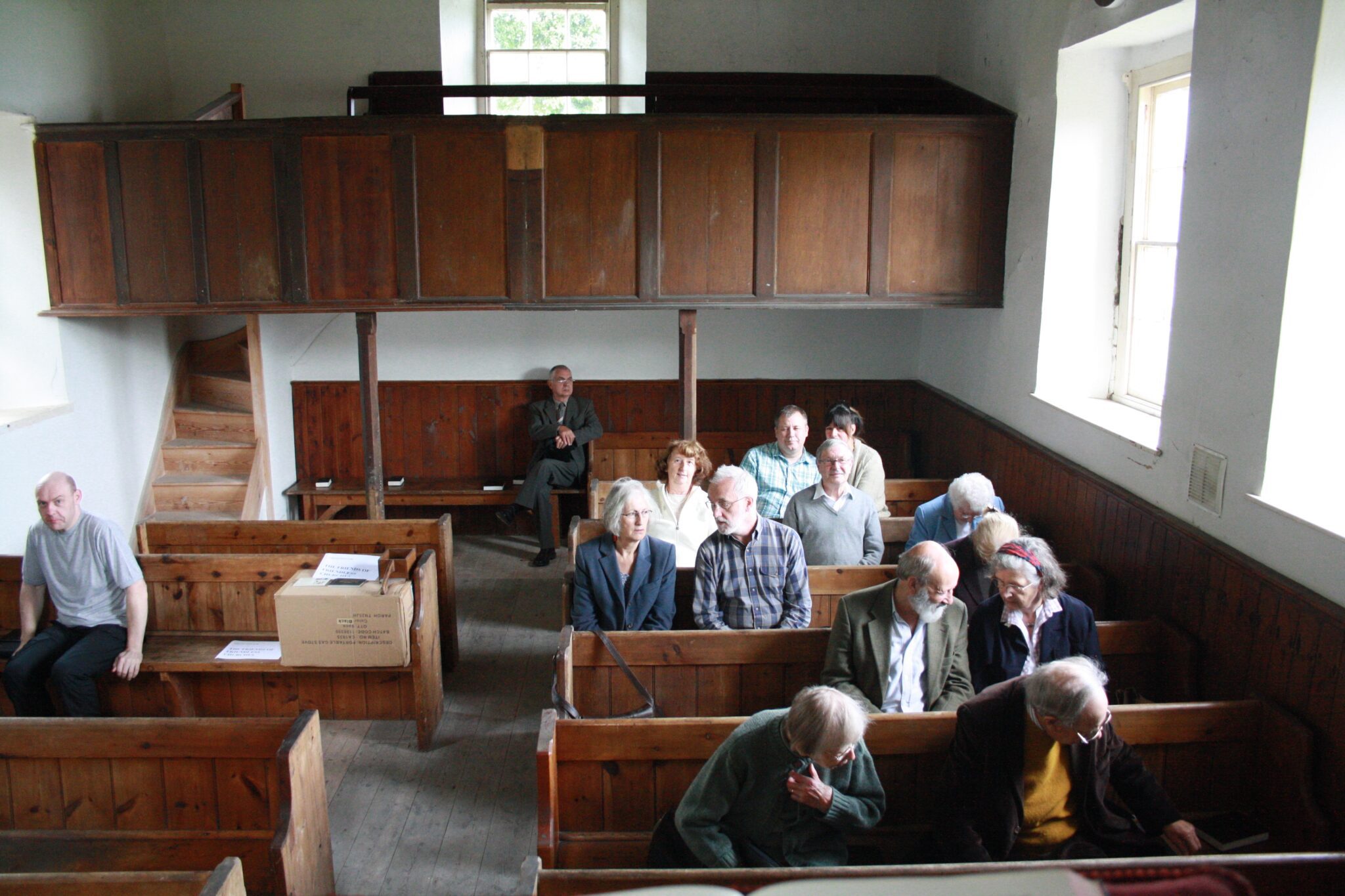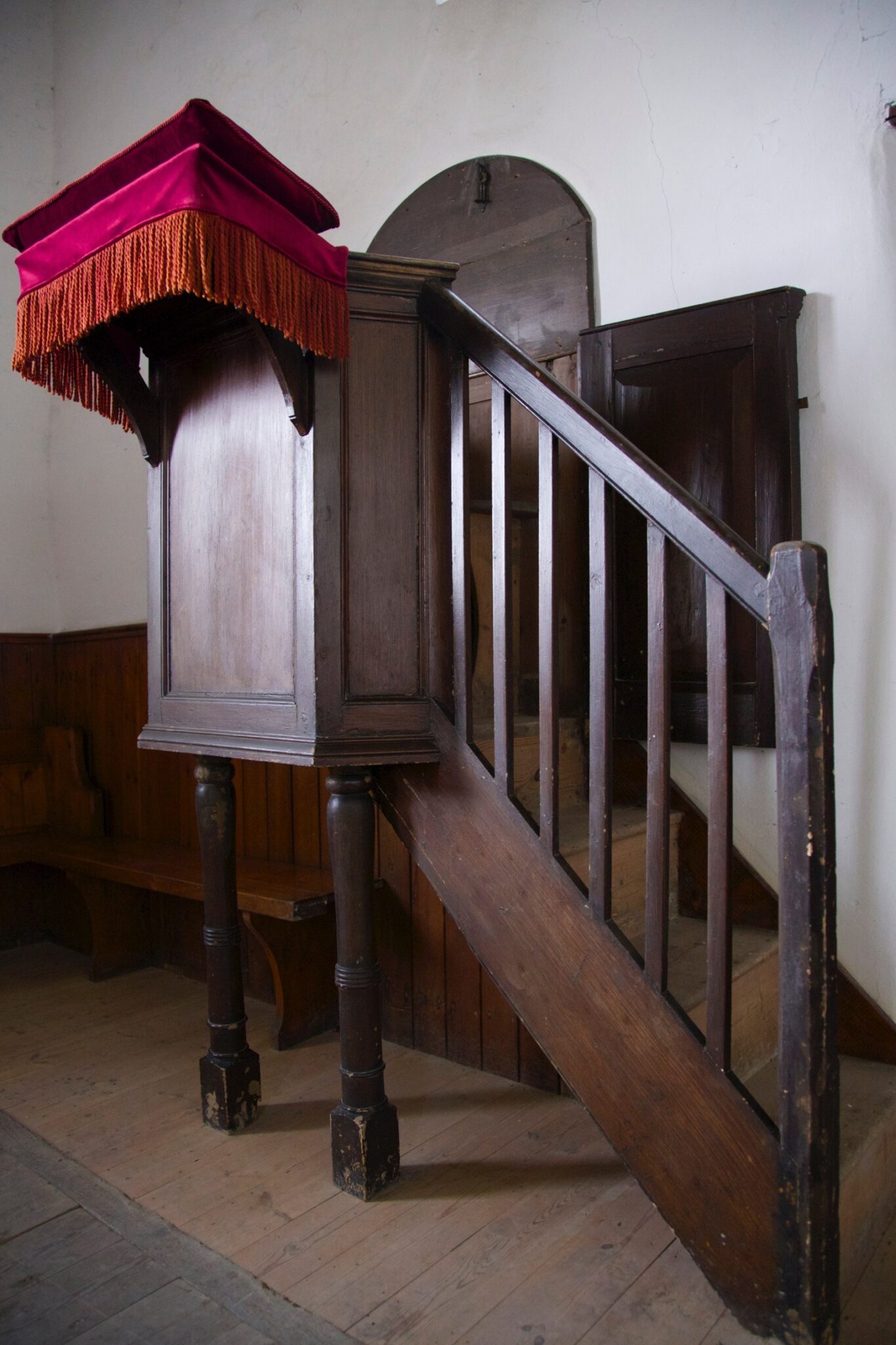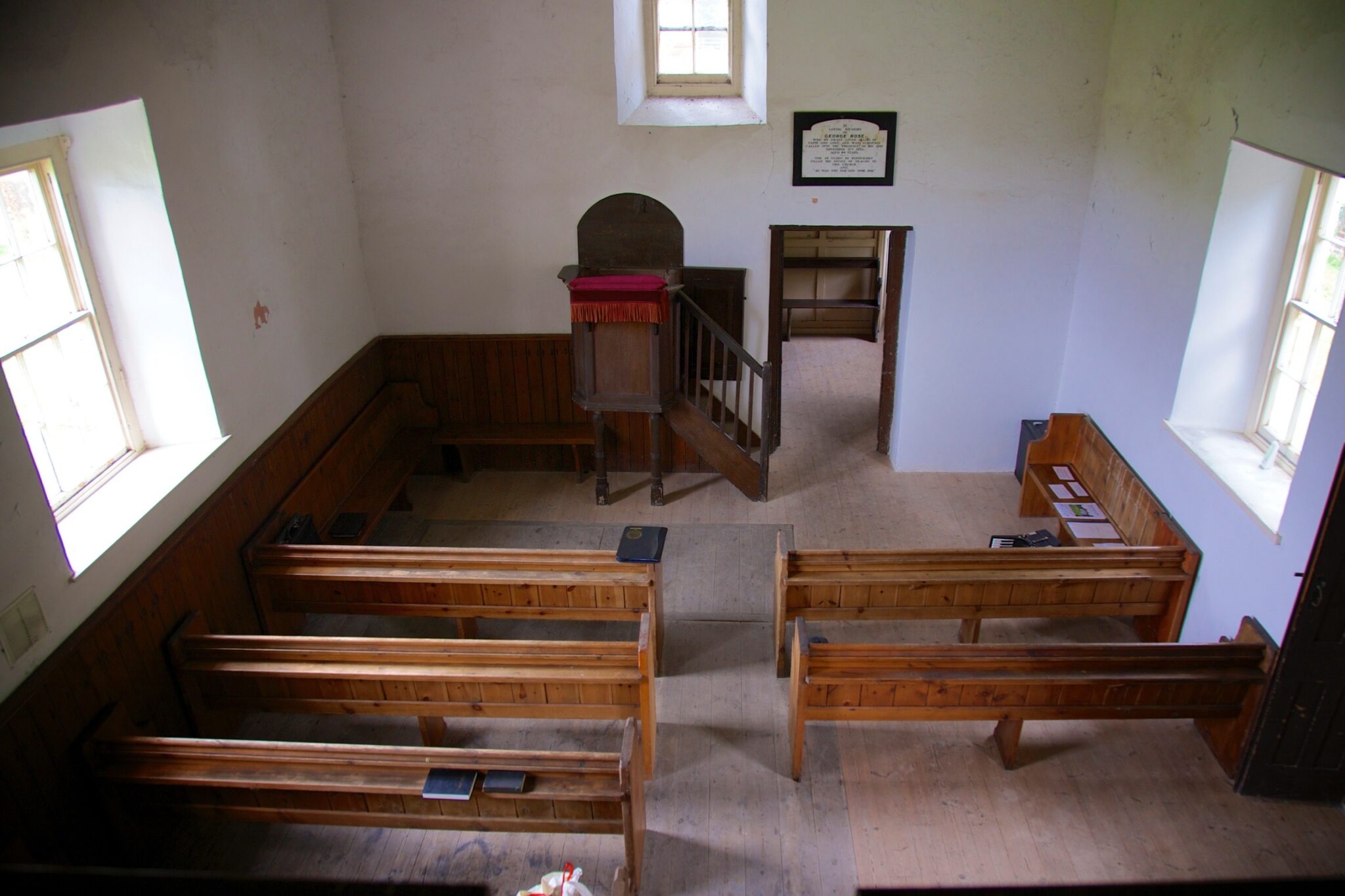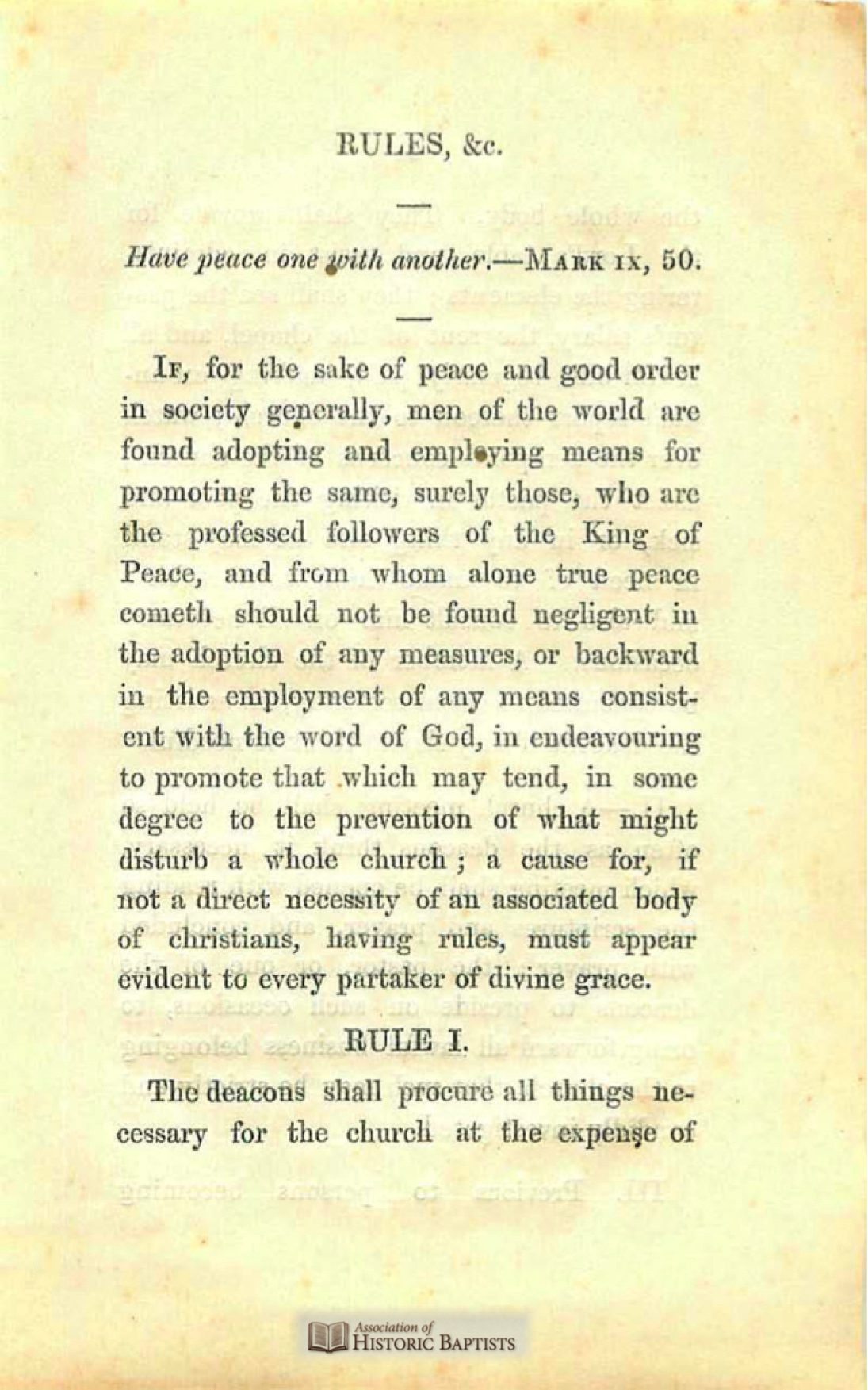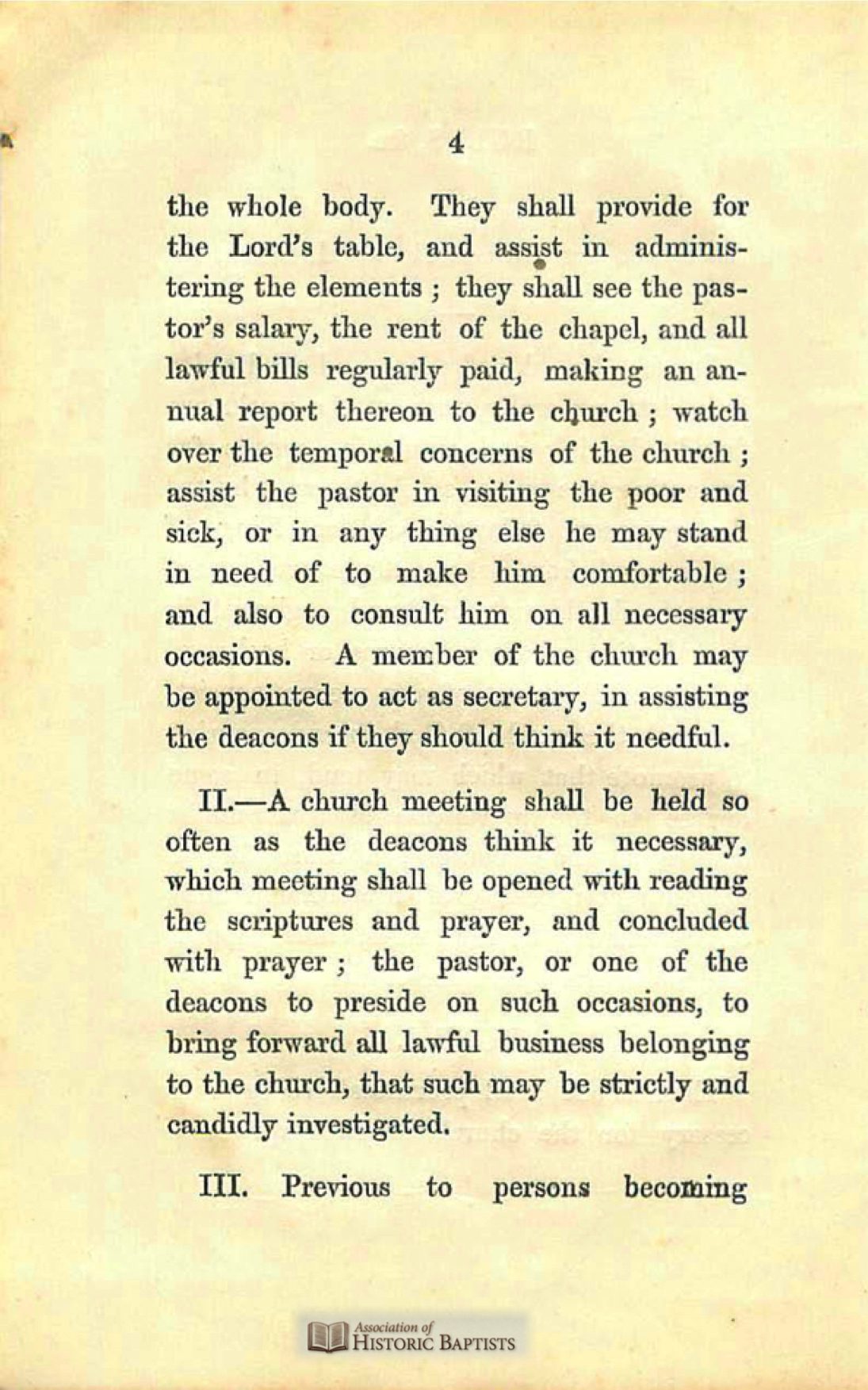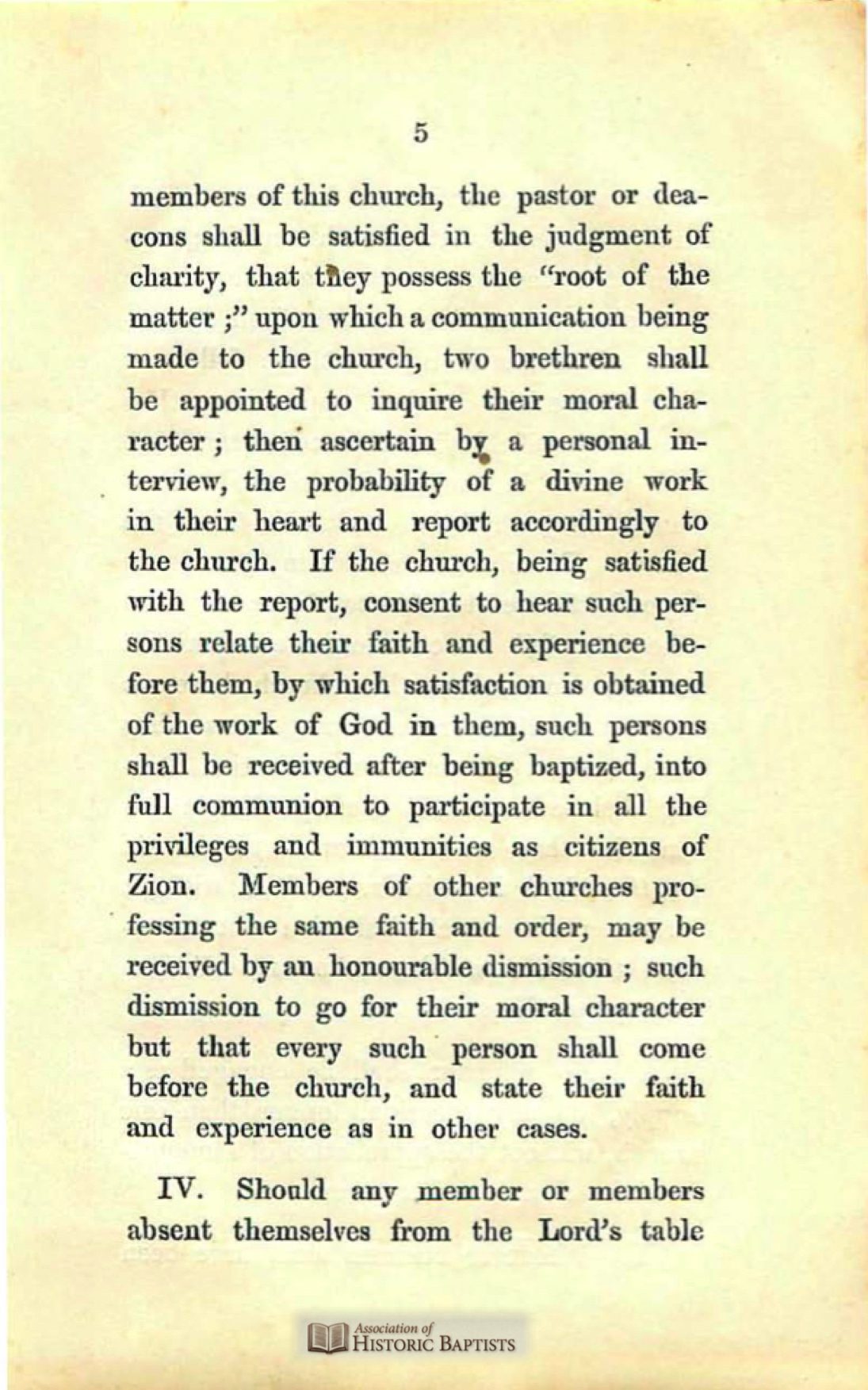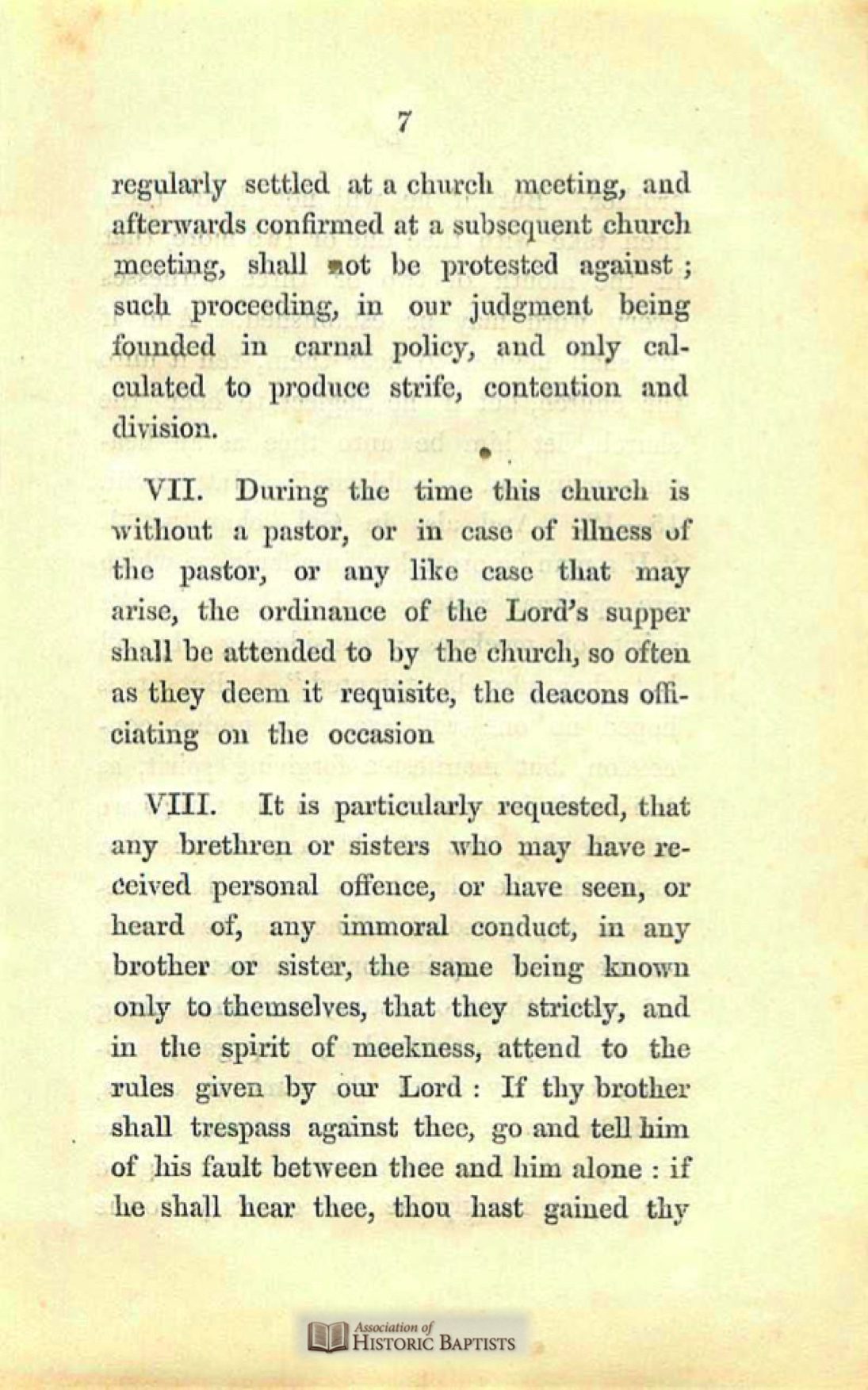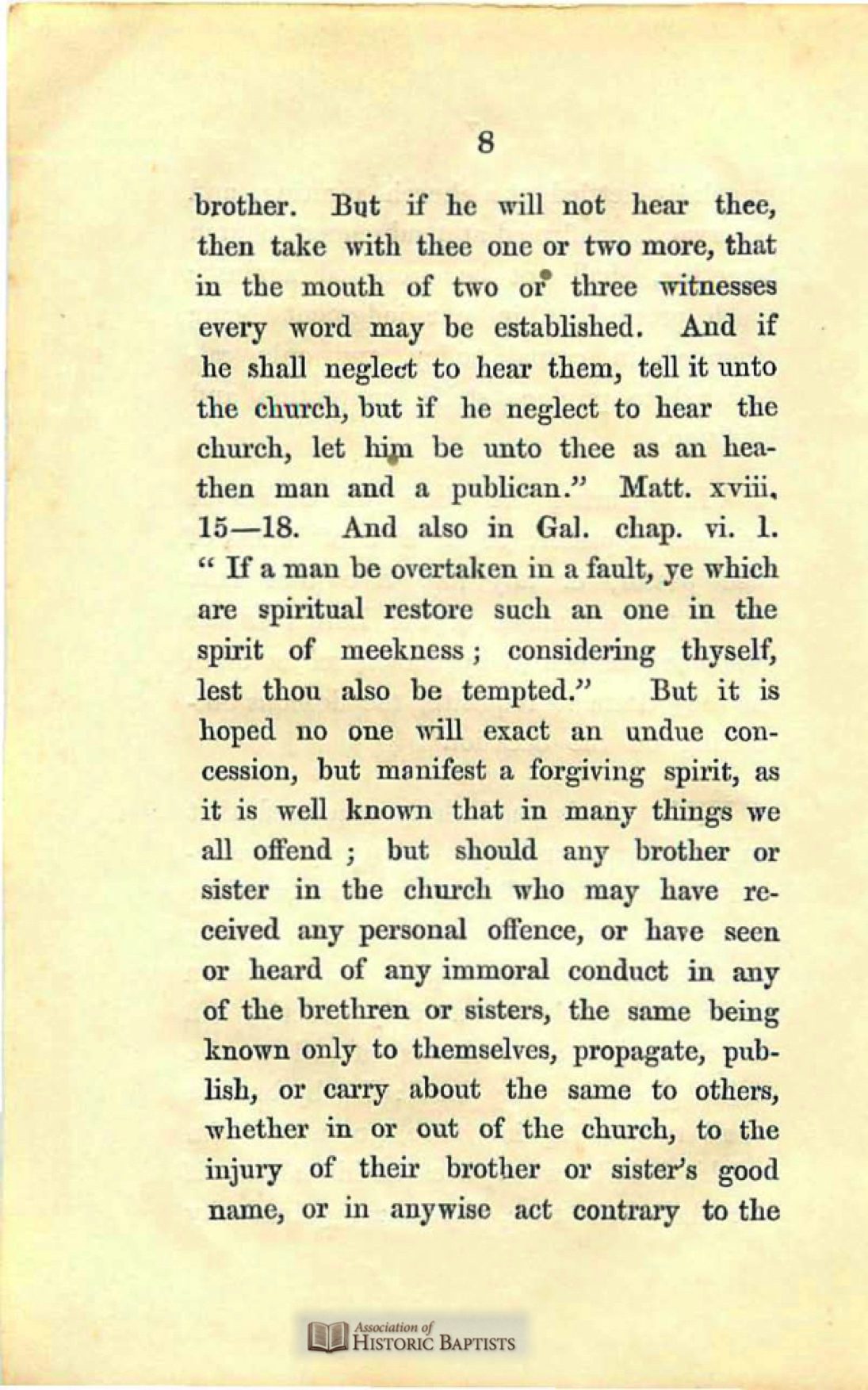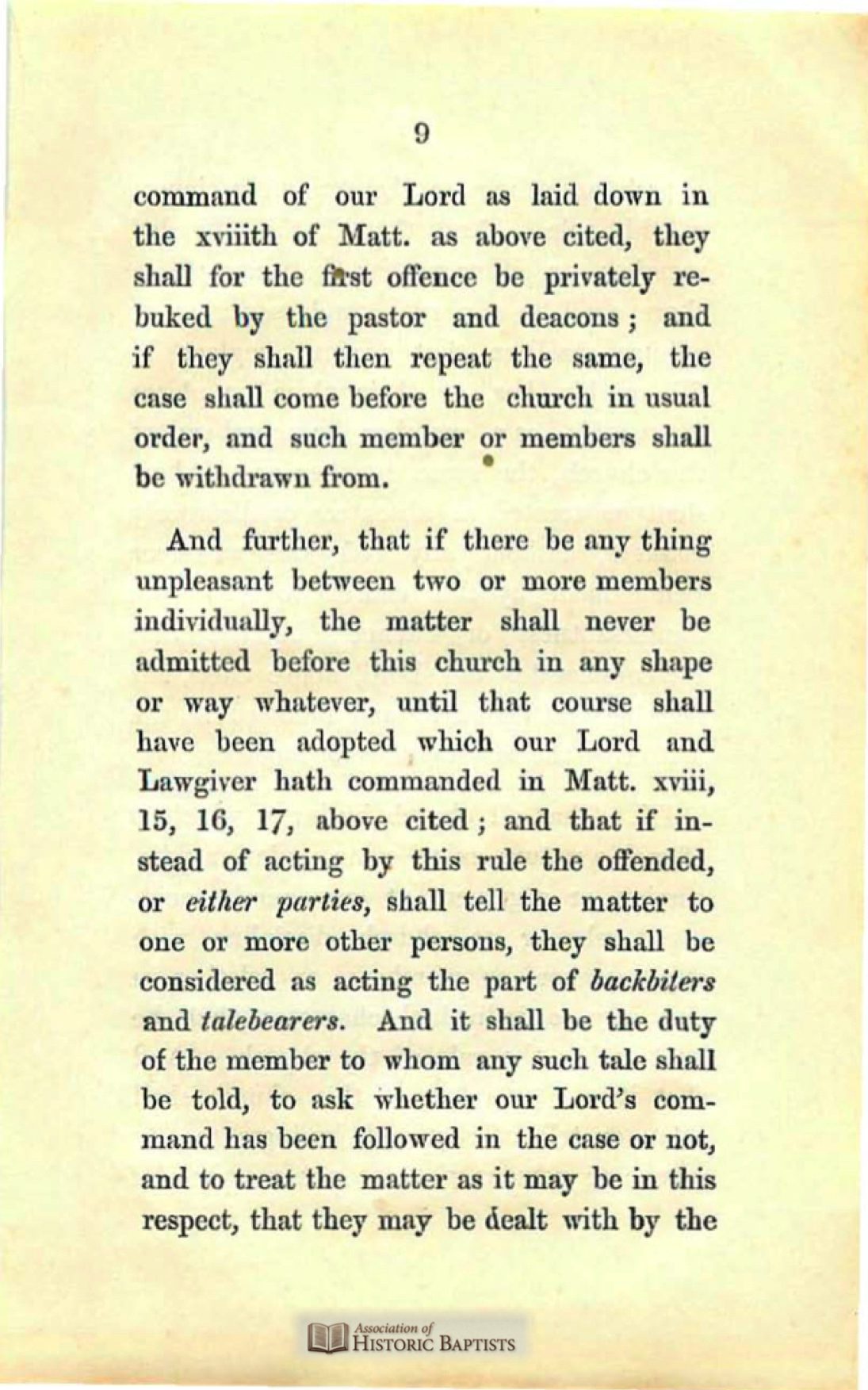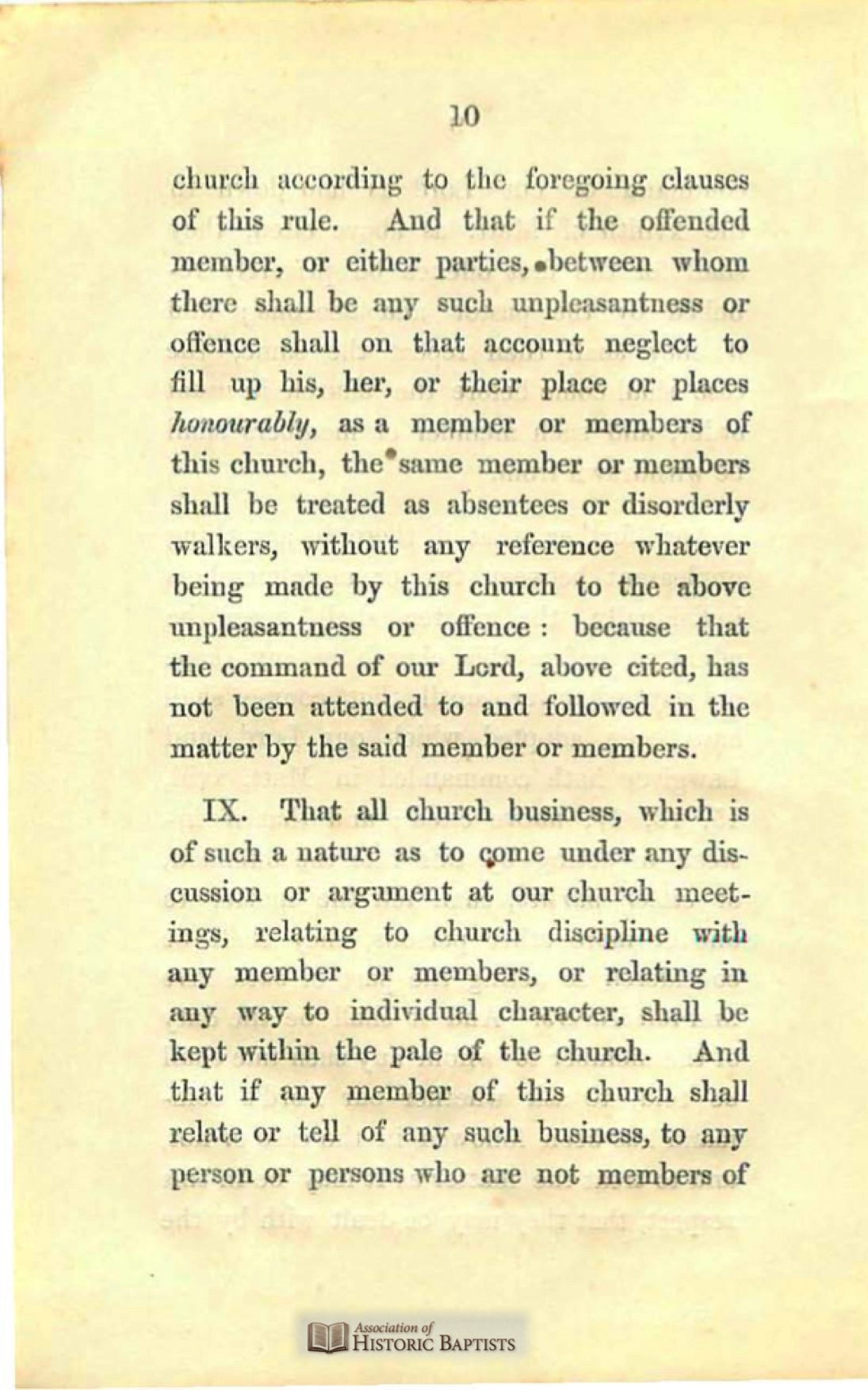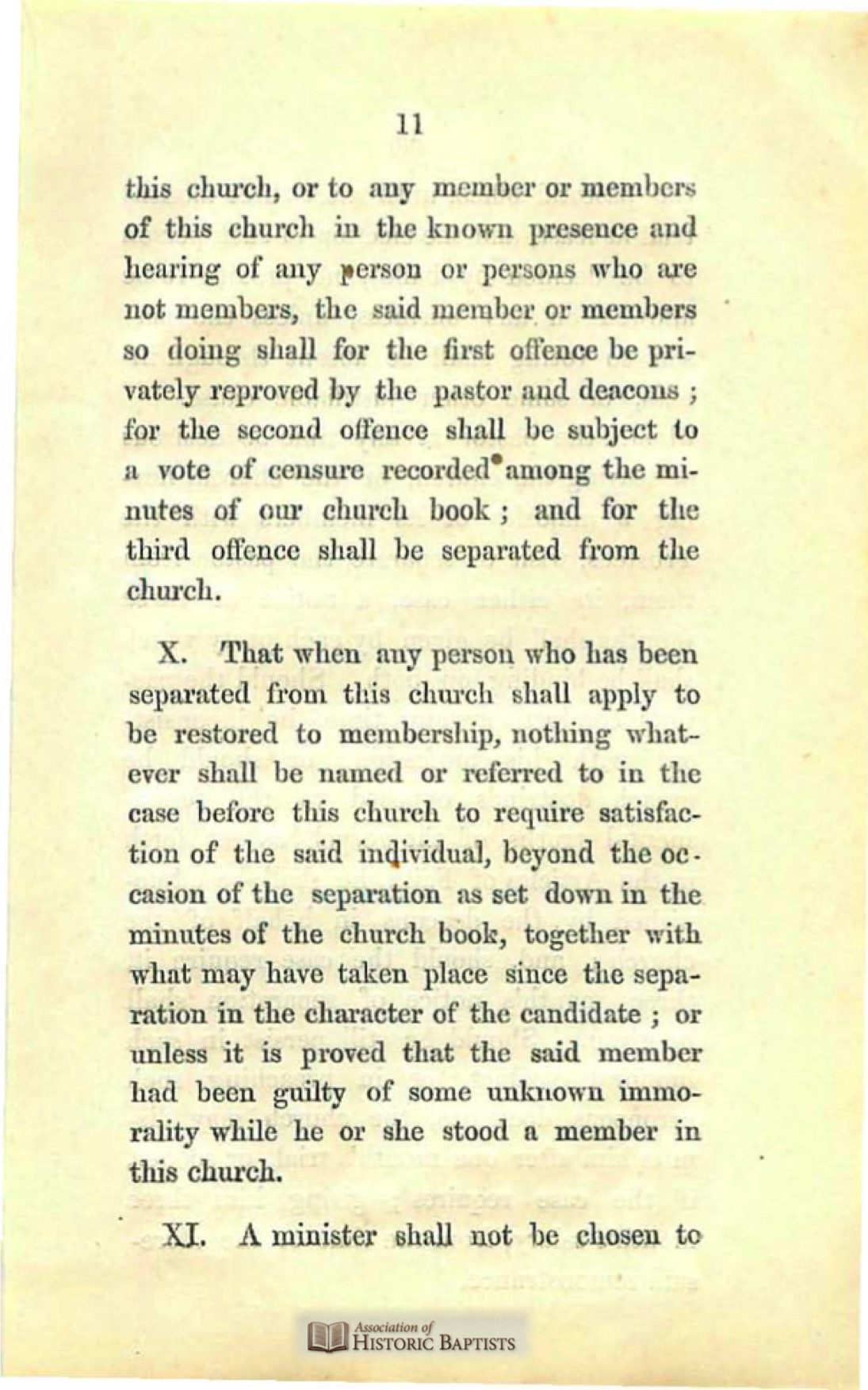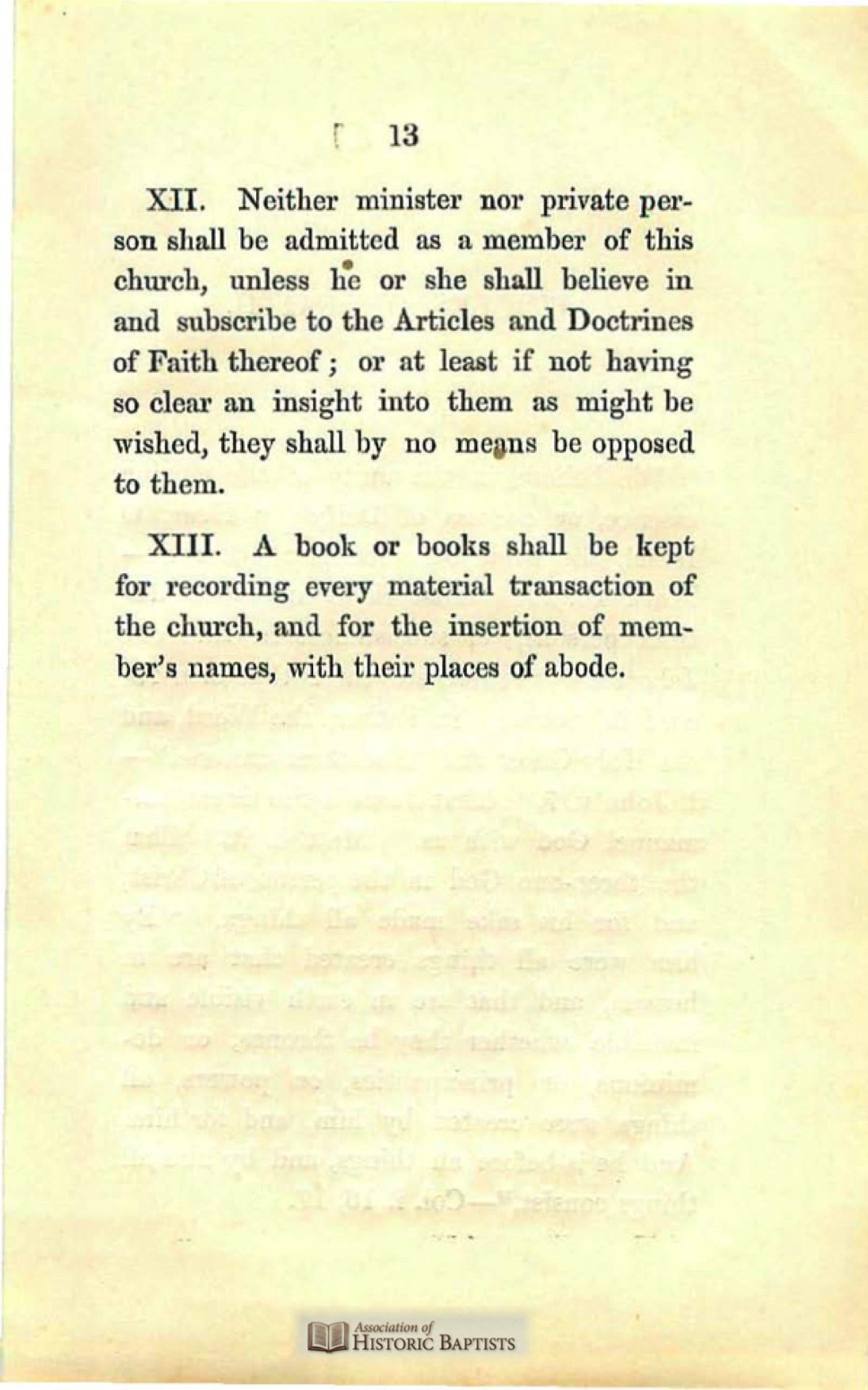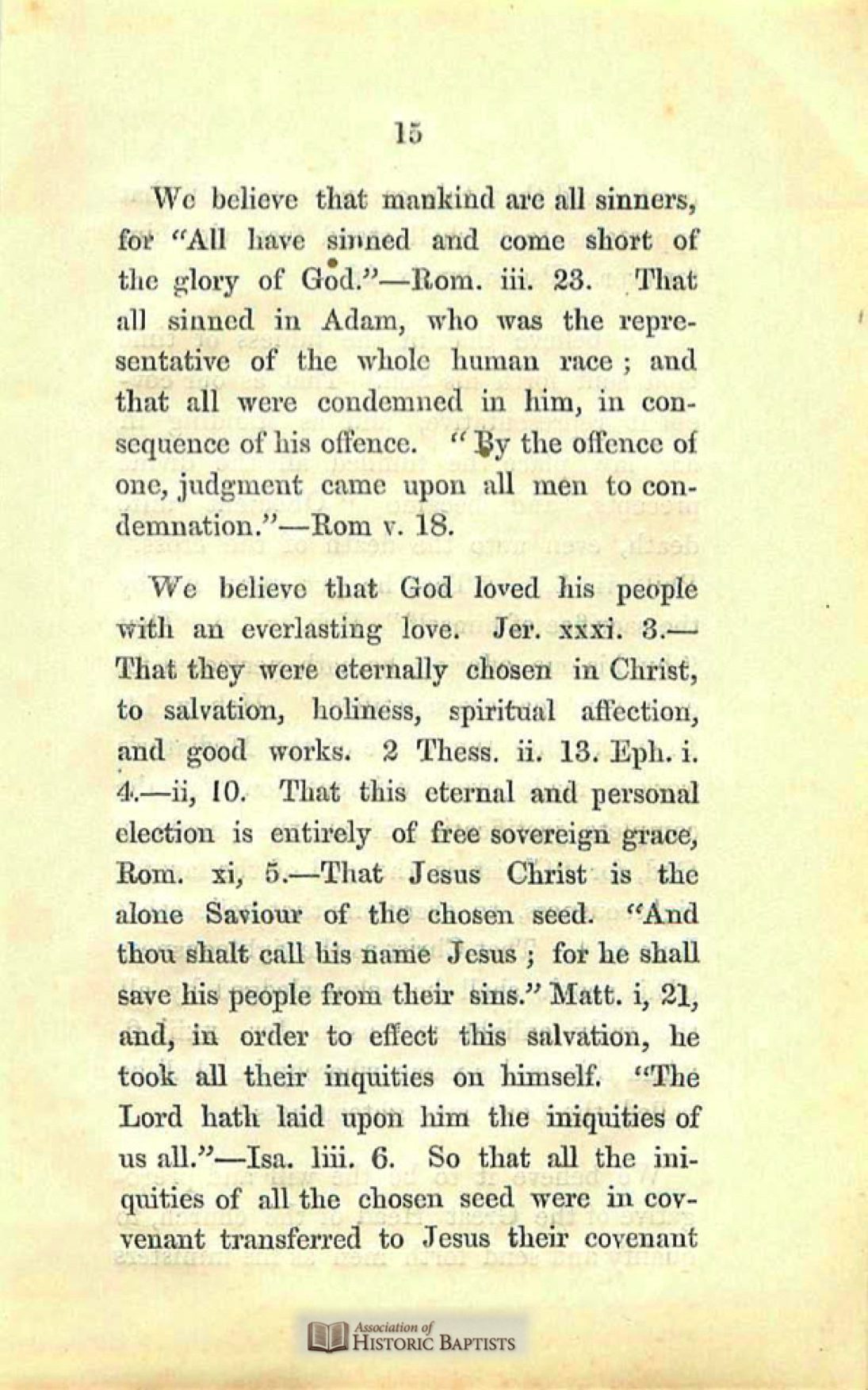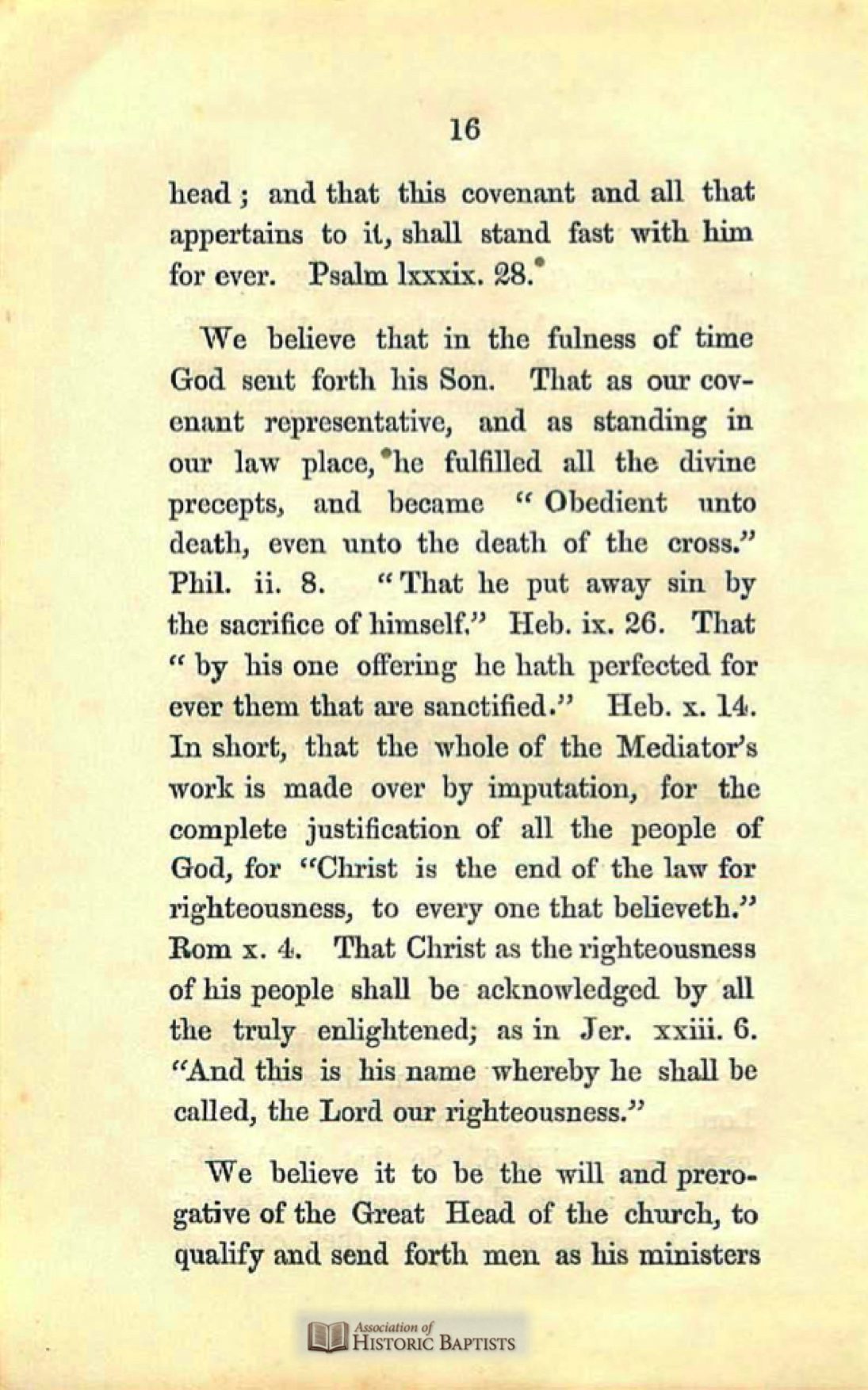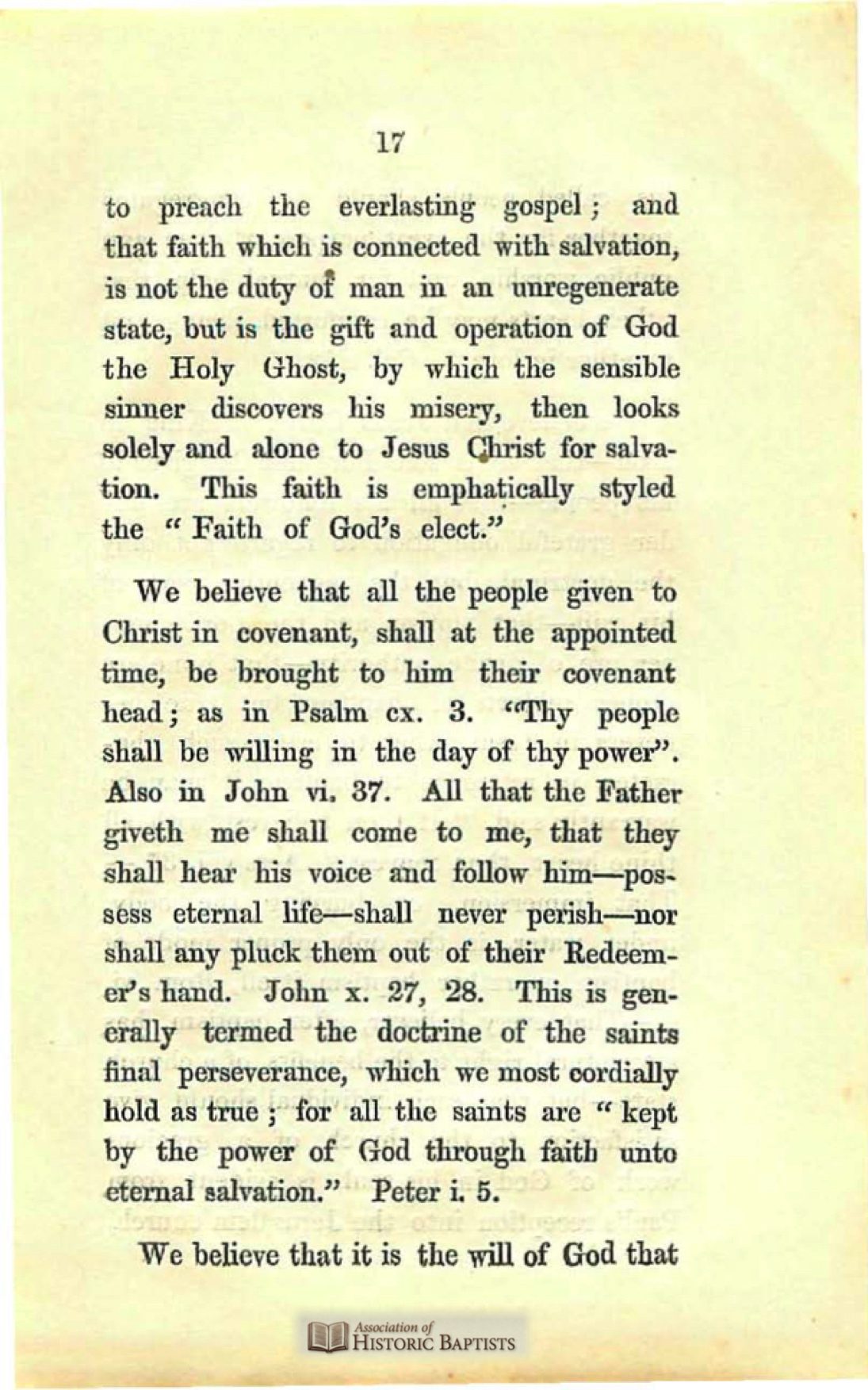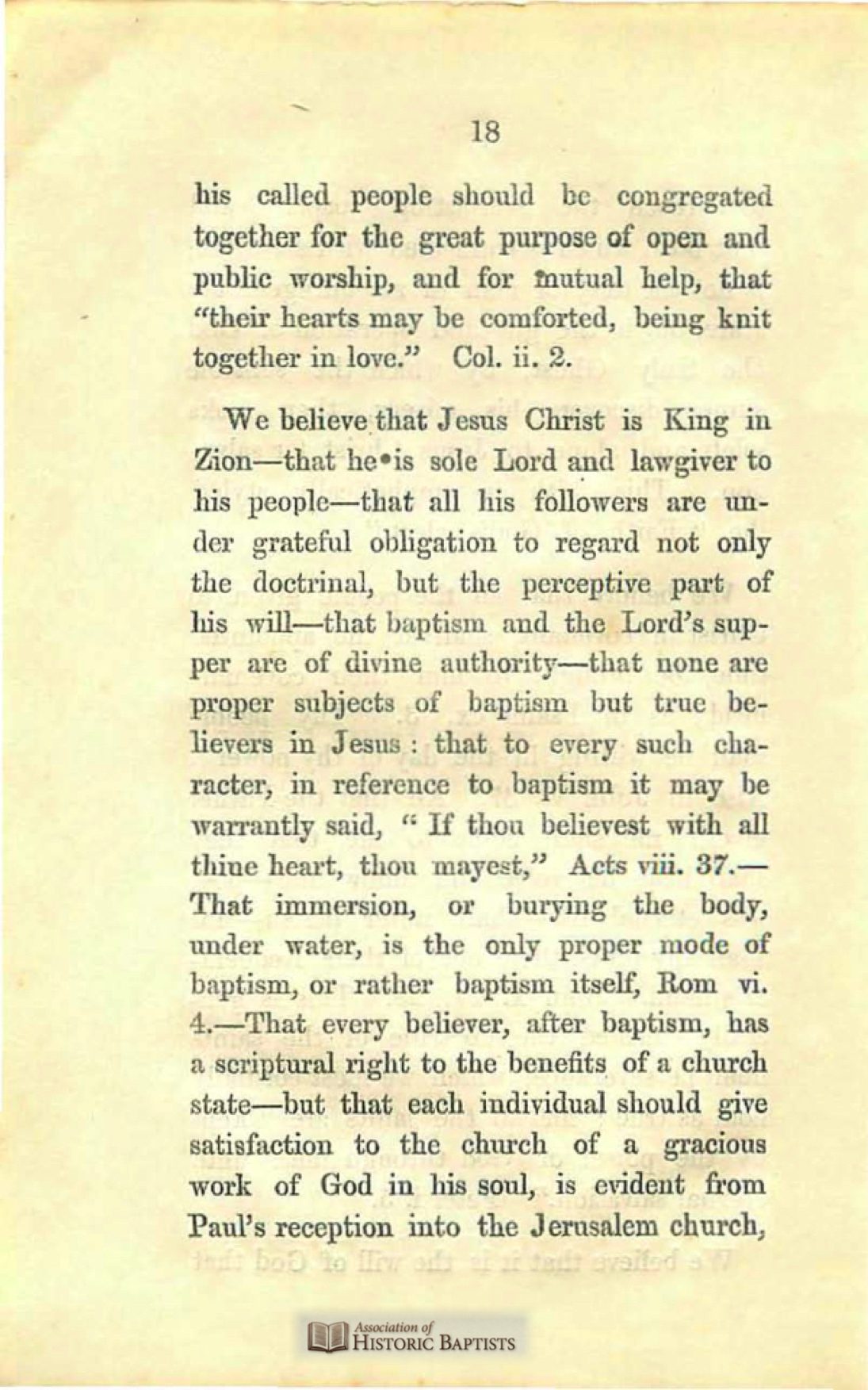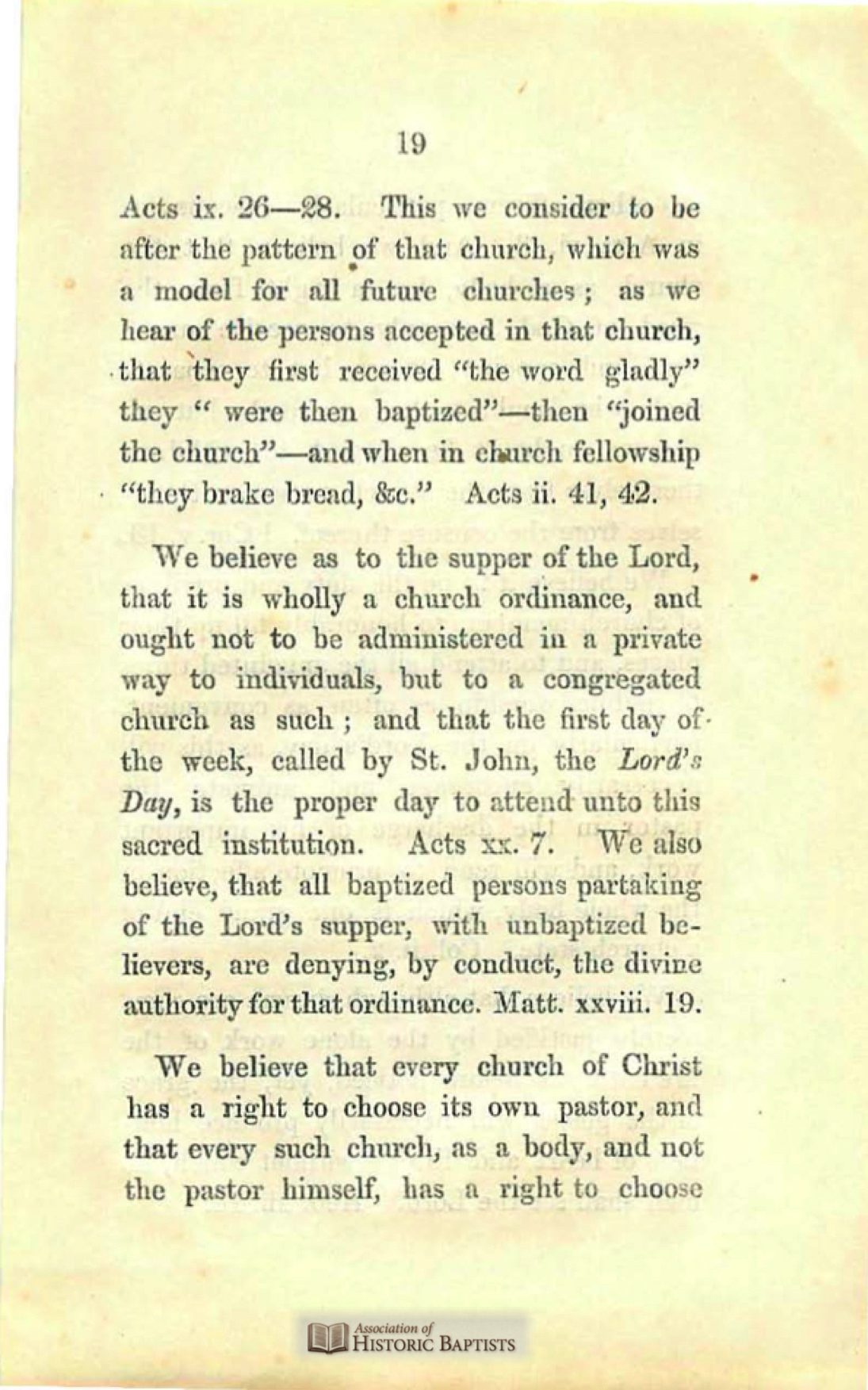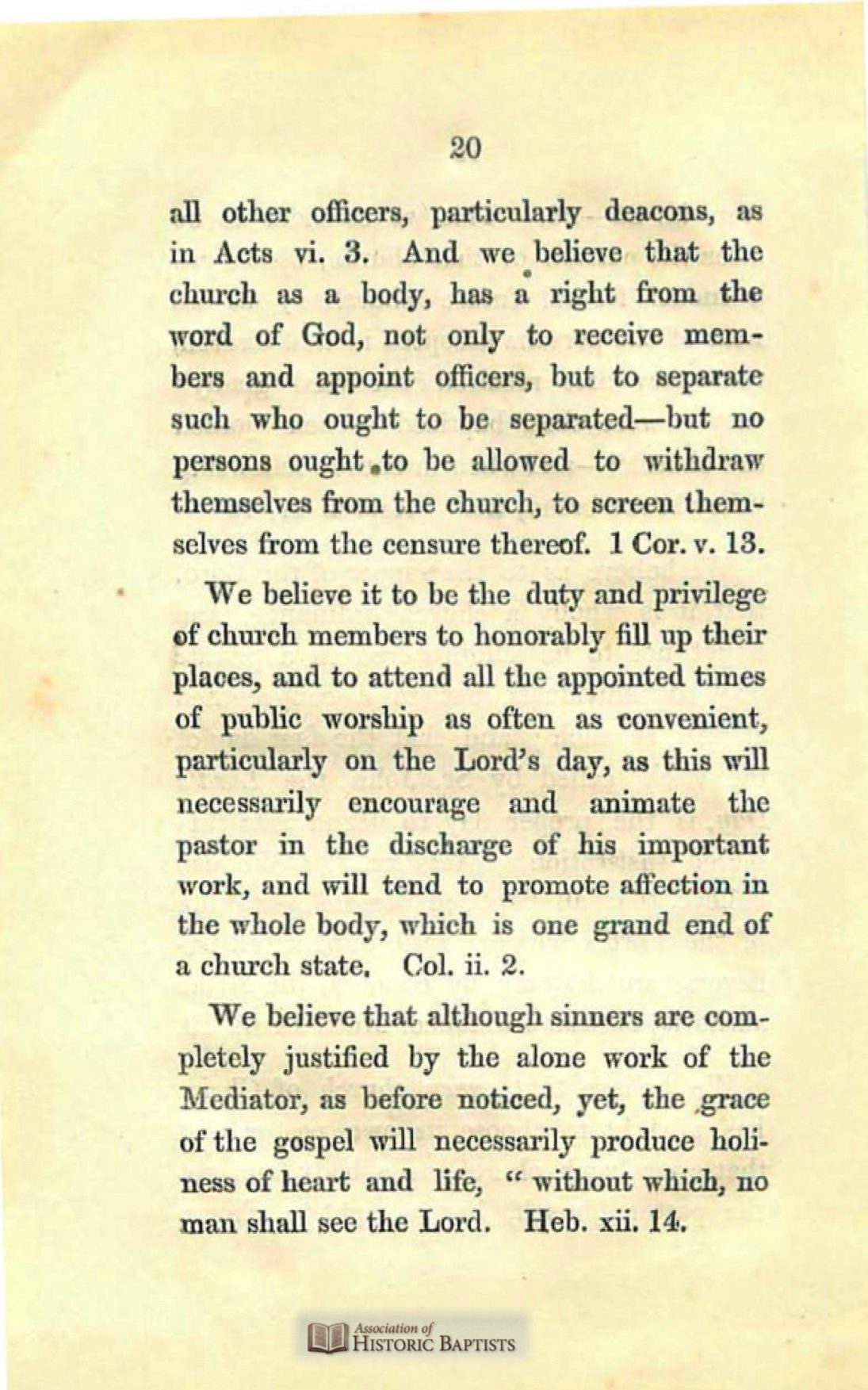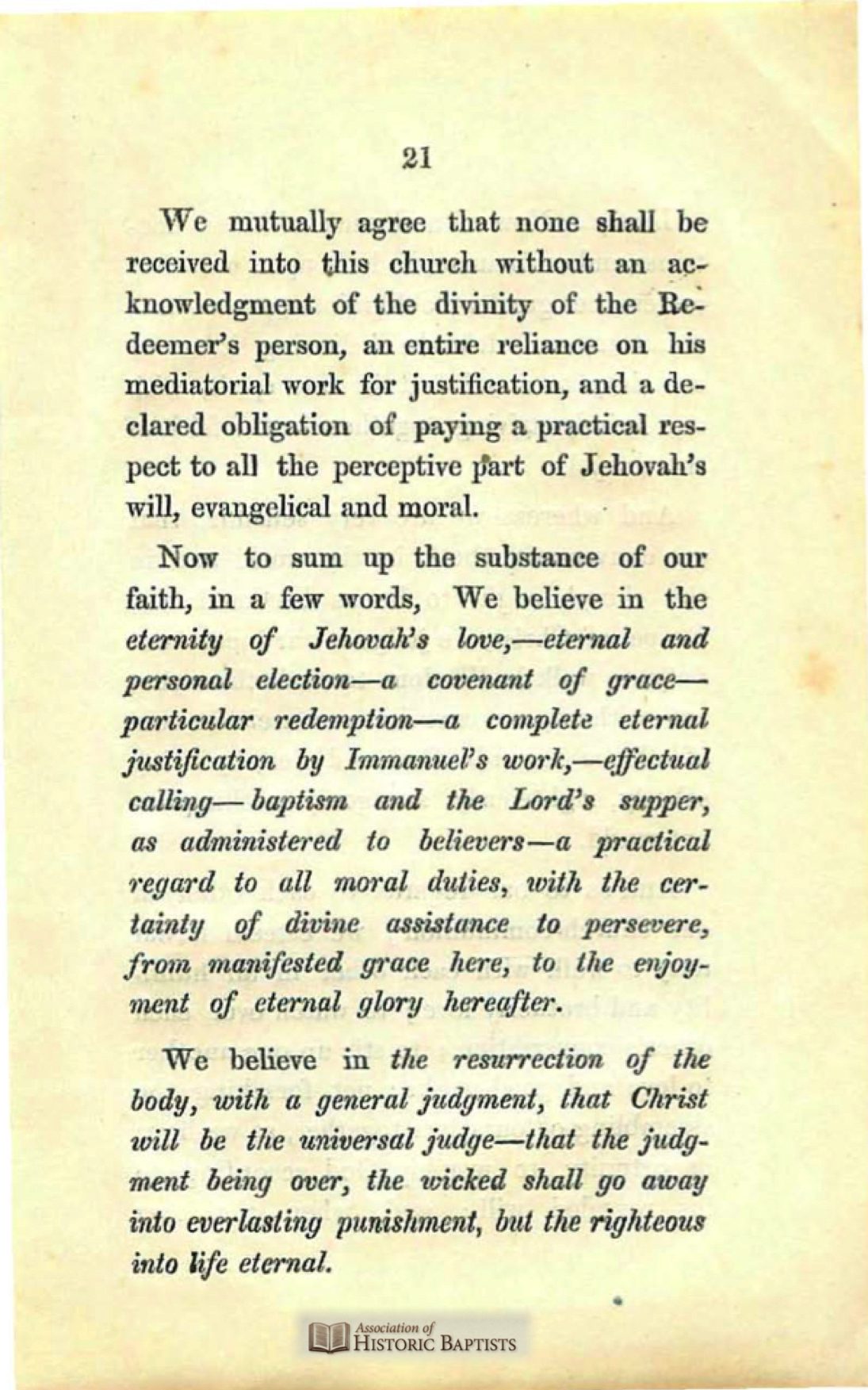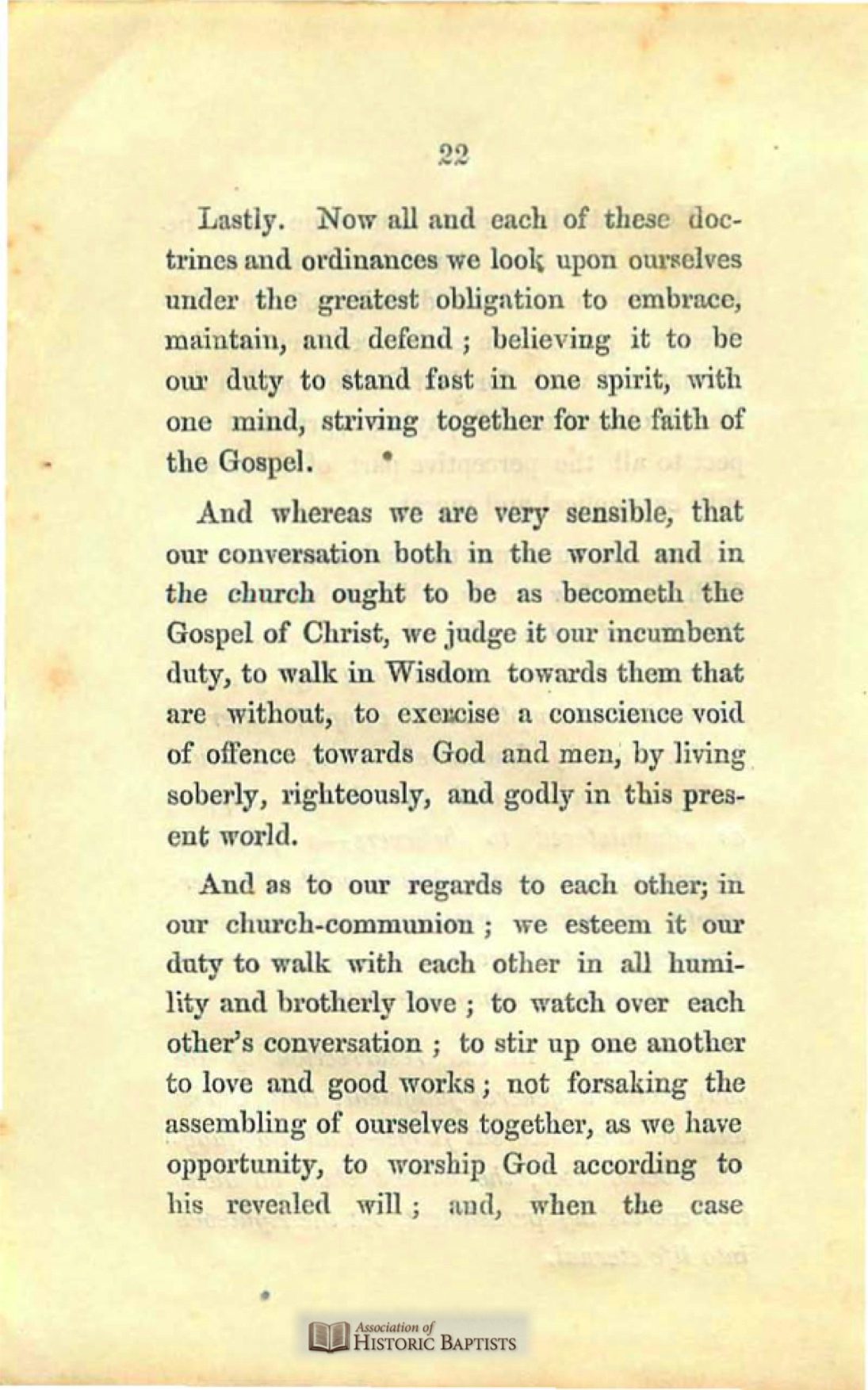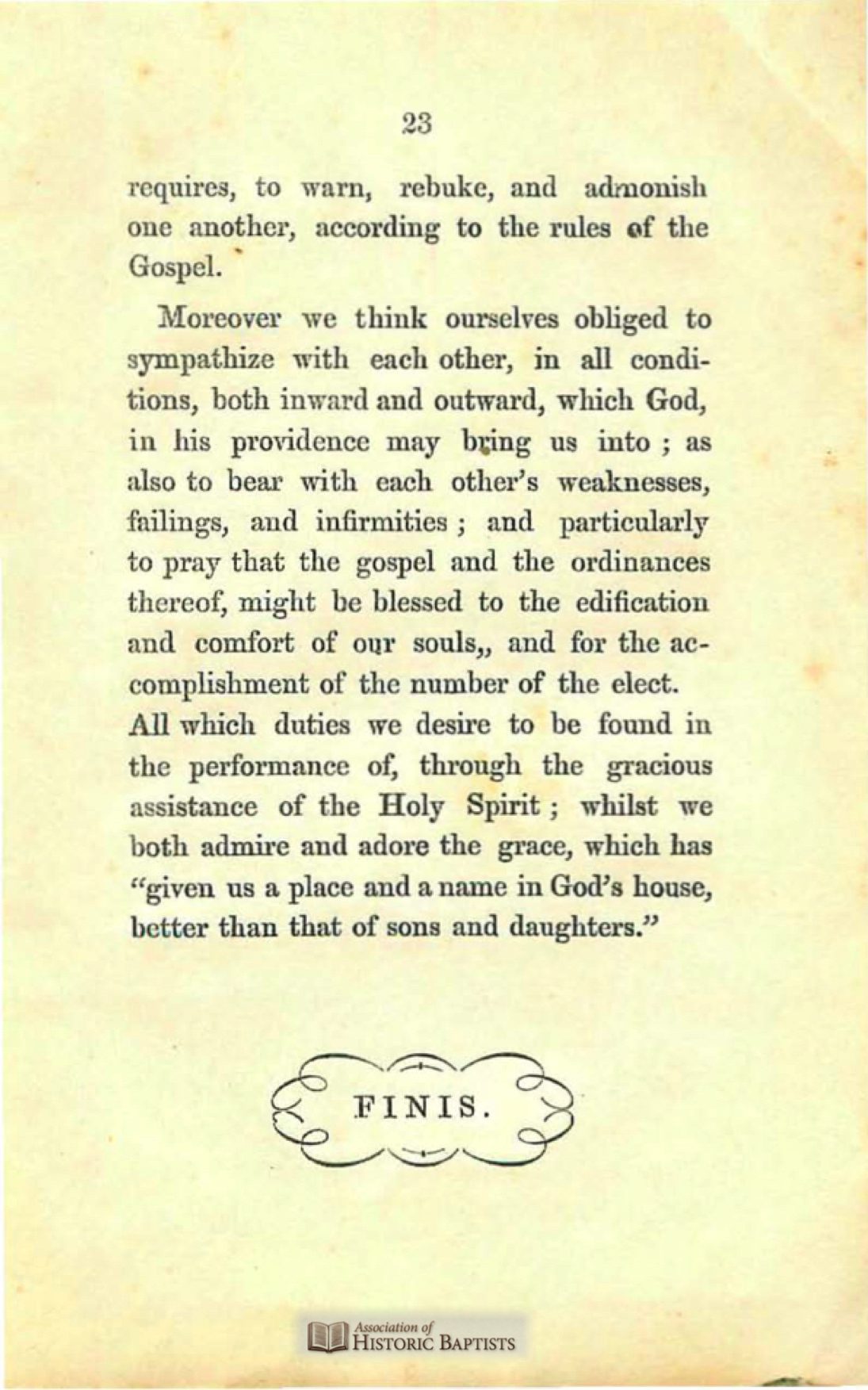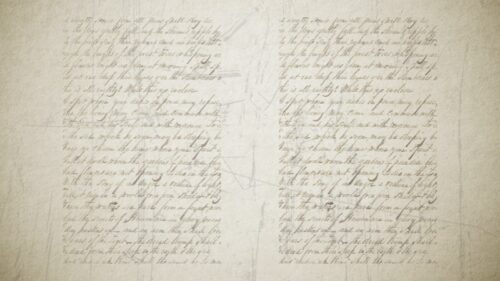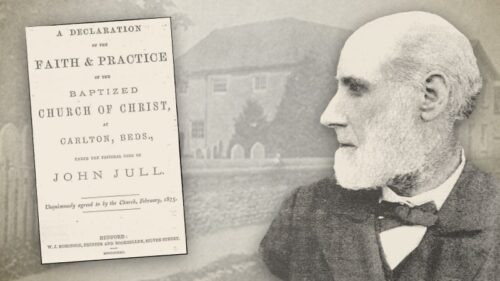
Waddesdon Hill Chapel
Waddesdon Hill Chapel, viewed from the back garden.
In 1792, Francis Cox, a local farmer and dedicated Christian, built a chapel at his own expense for the purpose of divine worship. This he did in an isolated place called Waddesdon Hill, Buckinghamshire. Three years later, Henry Paice was ordained to the Gospel Ministry and became the first pastor. Within three years of the pastor’s induction, the congregation had grown to sixty-five members. According to a list in a Newspaper article attached to the Church Book, the people who attended the meetings had come from around thirty surrounding villages. In “Strict and Particular”, Kenneth Dix points out: “…as churches were formed and chapels built in their own localities, the need for these people to make a long journey to an isolated chapel in the country no longer existed.” The church dissolved in 1976 and the meeting house was eventually handed over to the Friends of Friendless Churches.
Many of the members in succeeding generations were relatives of the first congregation and were buried on the chapel grounds.
Pastor Kevin Price, of Zoar Particular Baptist Chapel, Bradford, prizes the distinct values embraced by historic Strict/Particular Baptist churches. For the last several years, he has arranged annual services at Waddesdon Chapel for the purpose of commemorating the Strict Baptist witness. The following photos were taken during several different commemorative meetings.
The front of the chapel, at the close the of the service.
From the balcony, during the service.
From under the balcony, during the preaching.
From behind the pulpit, before the service.
The pulpit.
The baptistry is under the floor in front of the pulpit.
———————————–
The church of Christ meeting for divine worship at Waddesdon Hill, Buckinghamshire, subscribed to the following “Articles of Faith and Rules”.[1]
Articles of Faith
We believe in the unity of the Divine essence, or oneness of Deity; “Hear, O Israel, the Lord our God is one Lord.”—Mark 12:29. That there are three distinct persons, or subsistences in the one Jehovah. “There are three that bear record in heaven, the Father, the Word, and the Holy Ghost and these three are one.”—1 John 5:7. That Jesus is the Great Immanuel God with us. Matt. 1:23. That the three-one God in the person of Christ, and for his sake made all things. “By him were all things created that are in heaven, and that are in earth visible and invisible, whether they be thrones, or dominions, or principalities, or powers, all things were created by him, and for him. And he is before all things, and by him all things consist.”—Col. 1:16,17.
We believe that mankind are all sinners, for “All have sinned and come short of the glory of God.”—Rom. 3:2-3. That all sinned in Adam, who was the representative of the whole human race; and that all were condemned in him, in consequence of his alienee. “By the offence of one, judgment came upon all men to condemnation.”—Rom 5:18.
We believe that God loved his people with an everlasting love. Jer. 31:3 —That they were eternally chosen in Christ, to salvation, holiness, spiritual affection, and good works. 2 Thess. 2:13. Eph. 1:4.—2:10. That this eternal and personal election is entirely of free sovereign grace, Rom. 11:5.—That Jesus Christ is the alone Saviour of the chosen seed. “And thou shalt call his name Jesus; for he shall save his people from their sins.” Matt. 1:21, and, in order to effect this salvation, he took all their iniquities on himself. “The Lord hath laid upon him the iniquities of us all.”—Isa. 53:6. So that all the iniquities of all the chosen seed were in covenant transferred to Jesus their covenant head; and that this covenant and all that appertains to it, shall stand fast with him for ever. Psalm 89:28.”
We believe that in the fulness of time God sent forth his Son. That as our covenant representative, and as standing in our law place, he fulfilled all the divine precepts… and became “Obedient unto death, even unto the death of the cross.” Phil. 2:8. “That he put away sin by the sacrifice of himself.” Heb. 9:26. That “by his one offering he hath perfected for ever them that are sanctified.” Heb. 10:14. In short, that the whole of the Mediator’s work is made over by imputation, for the complete justification of all the people of God. for “Christ is the end of the law for righteousness to everyone that believeth.” Rom 10:4. That Christ as the righteousness of his people shall be acknowledged by all the truly enlightened; as in Jer. 23:6. “And this is his name whereby he shall be called, the Lord our righteousness.”
We believe it to be the will and prerogative of the Great Head of the church, to qualify and send forth men as his ministers to preach the everlasting gospel; and that faith which is connected with salvation, is not the duty or man in an unregenerate state, but is the gift and operation of God the Holy Ghost, by which the sensible sinner discovers his misery, then looks solely and alone to Jesus Christ for salvation. This faith is emphatically styled the “Faith of God’s elect.”
We believe that all the people given to Christ in covenant, shall at the appointed time, be brought to him their covenant head; as in Psalm 110:3. “Thy people shall be willing in the day of thy power”. Also in John 6:37. All that the Father giveth me shall come to me, that they shall hear his voice and follow him—possess eternal life—shall never perish—nor shall any pluck them out of their Redeemer’s hand. John 10:27,28. This is generally termed the doctrine of the saints final perseverance, which we most cordially hold as true; for all the saints are “kept by the power of God through faith unto eternal salvation.” Peter 1:5.
We believe that it is the will of God that his called people should he congregated together for the great purpose of open and public worship, and for mutual help, that “their hearts may be comforted, being knit together in love.” Col. 2:2.
We believe that Jesus Christ is King in Zion—that he is sole Lord and lawgiver to his people—that all his followers are under grateful obligation to regard not only the doctrinal, but the perceptive part of his will—that baptism and the Lord’s supper are of divine authority—that none are proper subjects of baptism but true believers in Jesus: that to every such character, in reference to baptism it may be warrantly said, “If thou believest with all thine heart, thou mayest,” Acts 8:37.— That immersion, or burying the body, under water, is the only proper mode of baptism, or rather baptism itself, Rom 6:4.—That every believer, after baptism, has a scriptural right to the benefits of a church state—but that each individual should give satisfaction to the church of a gracious work of God in his soul, is evident from Paul’s reception into the Jerusalem church, Acts 9:26-28. This we considcr to be after the pattern of that church, which was a model for all future churches; as we hear of the persons accepted in that church, that they first received “the word gladly” they “were then baptized”—then “joined the church”—and when in church fellowship “they brake bread, &c.” Acts 2:41,42.
We believe as to the supper of the Lord, that it is wholly a church ordinance, and ought not to be administered in a private way to individuals, but to a congregated church as such; and that the first day of the week, called by St. John, the Lord’s Day, is the proper day to attend unto this sacred institution. Acts 20:7. We also believe, that all baptized persons partaking of the Lord’s supper, with unbaptized believers, are denying, by conduct, the divine authority for that ordinance. Matt. 28:19.
We believe that every church of Christ has a right to choose its own pastor, and that every such church, as a body, and not the pastor himself, has a right to choose all other officers, particularly deacons, as in Acts 6:3. And we believe that the church as a body, has a right from the word of God, not only to receive members and appoint officers, but to separate such who ought to be separated—but no persons ought to be allowed to withdraw themselves from the church, to screen themselves from the censure thereof. 1 Cor. 5:13.
We believe it to be the duty and privilege of church members to honorably fill up their places, and to attend all the appointed times of public worship as often as convenient, particularly on the Lord’s day, as this will necessarily encourage and animate the pastor in the discharge of his important work, and will tend to promote affection in the whole body, which is one grand end of a church state. Col. 2:2.
We believe that although sinners are completely justified by the alone work of the Mediator, as before noticed, yet, the grace of the gospel will necessarily produce holiness of heart and life, “without which, no mall shall see the Lord. Heb. 12:14.
We mutually agree that none shall be received into this church without an acknowledgment of the divinity of the Redeemer’s person, an entire reliance on his mediatorial work for justification, and a declared obligation of paying a practical respect to all the perceptive part of Jehovah’s will, evangelical and moral.
Now to sum up the substance of our faith, in a few words, We believe in the eternity of Jehovah’s love,—eternal and personal election—a covenant of grace—particular redemption—a complete eternal justification by Immanuel’s work,—effectual calling—baptism and the Lord’s supper, as administered to believers—a practical regard to all moral duties, with the certainty of divine assistance to persevere, from manifested grace here, to the enjoyment of eternal glory hereafter.
We believe in the resurrection of the body, with a general judgment, that Christ will be the universal judge—that the judgment being over, the wicked shall go away into everlasting punishment, but the righteous into life eternal.
Lastly. Now all and each of these doctrines and ordinances we look upon ourselves under the greatest obligation to embrace, maintain, and defend; believing it to be our duty to stand fast in one spirit, with one mind, striving together for the faith of the Gospel.
And whereas we are very sensible, that our conversation both in the world and in the church ought to be as becometh the Gospel of Christ, we judge it our incumbent duty, to walk in Wisdom towards them that are without, to exercise a conscience void of offence towards God and men, by living soberly, righteously, and godly in this present world.
And as to our regards to each other; in our church communion; we esteem it our duty to walk with each other in all humility and brotherly love; to watch over each other’s conversation; to stir up one another to love and good works; not forsaking the assembling of ourselves together, as we have opportunity, to worship God according to his revealed will; and, when the case requires, to warn, rebuke, and admonish one another, according to the rules of the Gospel.
Moreover we think ourselves obliged to sympathize with each other, in all conditions, both inward and outward, which God, in his providence may bring us into; as also to bear with each other’s weaknesses, failings, and infirmities; and particularly to pray that the gospel and the ordinances thereof, might be blessed to the edification and comfort of our souls, and for the accomplishment of the number of the elect. All which duties we desire to be found in the performance of, through the gracious assistance of the Holy Spirit; whilst we both admire and adore the grace, which has “given us a place and a name in God’s house, better than that of sons and daughters.”
Rules, &c.
Have peace one with another.—Mark 9:50.
If, for the sake of peace and good order in society generally, men of the world are found adopting and employing means for promoting the same, surely those, who are the professed followers of the King of Peace, and from whom alone true peace cometh should not be found negligent in the adoption of any measures, or backward in the employment of any means consistent with the word of God, in endeavouring to promote that which may tend, in some degree to the prevention of what might disturb a whole church; a cause for, if not a direct necessity of an associated body of christians, having rules, must appear evident to every partaker of divine grace.
And further, that if there be any thing unpleasant between two or more members individually, the matter shall never be admitted before this church in any shape or way whatever, until that course shall have been adopted which our Lord and Lawgiver hath commanded in Matt. 18:15,16, 17, above cited; and that if instead of acting by this rule the offended, or either parties, shall tell the matter to one or more other persons, they shall be considered as acting the part of backbiters and talebearers. And it shall be the duty of the member to whom any such tale shall be told, to ask whether our Lord’s command has been followed in the case or not, and to treat the matter as it may be in this respect, that they may be dealt with by the church according to the foregoing clauses of this rule. And that if the offended member, or either parties, between whom there shall be any such unpleasantness or offence shall on that account neglect to fill up his, her, or their place or places honourably, as a member or members of this church, the same member or members shall be treated as absentees or disorderly walkers, without any reference whatever being made by this church to the above unpleasantness or offence: because that the command of our Lord, above cited, has not been attended to and followed in the matter by the said member or members.
——————————-
[1] Provided by the Strict Baptist Historical Society.



